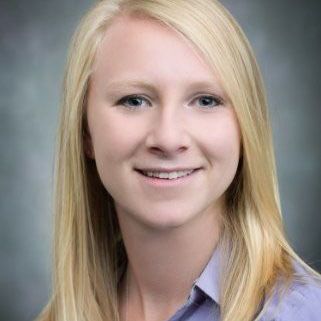The Surface-Specificity of IRRAS in Studying Soluble Organic Acids: An Interview with Alexandra Deal
Infrared reflection absorption spectroscopy (IRRAS) is widely employed for analyzing molecules on surfaces, especially water, with applications in atmospheric chemistry and food science. However, concerns exist about its surface-specificity, particularly when examining soluble surfactants in aqueous solutions.
Alexandra Deal, who currently works at Lawrence Berkeley National Laboratory, explored the surface-specificity of IRRAS in soluble organic acids beneath monolayers of insoluble surfactants while she was a graduate research assistant at the University of Colorado, Boulder. She published her findings in Applied Spectroscopy (1). Spectroscopy spoke with Deal to learn more about her research and IRRAS as a technique.
Alexandra Deal of Lawrence Berkeley National Laboratory | Photo Credit: © Alexandra Deal

In this video interview, Deal responds to the following questions:
- Can you provide more details about the debate surrounding the surface-specificity of IRRAS on aqueous solutions?
- Your research paper mentions "subsurface effects" and the subtraction of contributions from insoluble surfactants in the spectra. Could you explain the methodology used to capture these subsurface effects and how it contributes to the understanding of surface-specificity in IRRAS?
- The research demonstrates that IRRAS spectra of soluble organic acids are surface-specific. Could you elaborate on the key findings and how this conclusion was reached?
- You mention a simplified model for reflections from "subsurface" layers. Could you describe this model and its role in interpreting the results of the study?
- Would you describe how IRRAS might be used for measurements in the fields of atmospheric chemistry and food science?
- What was unique about your study compared to previous studies? What conclusions should be taken from your study?
To view our other video content, click on this link here: https://www.spectroscopyonline.com/topic/spectroscopy-interviews
Reference
(1) Deal, A. M. Infrared Reflection Absorption Spectroscopy (IRRAS) of Water-Soluble Surfactants: Is it Surface-Specific? Appl. Spectrosc. 2023, ASAP. DOI: 10.1177/00037028231200903
Newsletter
Get essential updates on the latest spectroscopy technologies, regulatory standards, and best practices—subscribe today to Spectroscopy.
How Analytical Chemists Are Navigating DOGE-Driven Funding Cuts
July 14th 2025DOGE-related federal funding cuts have sharply reduced salaries, lab budgets, and graduate support in academia. Researchers view the politically driven shifts in priorities as part of recurring systemic issues in U.S. science funding during administrative transitions. The impact on Federal laboratories has varied, with some seeing immediate effects and others experiencing more gradual effects. In general, there is rising uncertainty over future appropriations. Sustainable recovery may require structural reforms, leaner administration, and stronger industry-academia collaboration. New commentary underscores similar challenges, noting scaled-back graduate admissions, spending freezes, and a pervasive sense of overwhelming stress among faculty, students, and staff. This article addresses these issues for the analytical chemistry community.